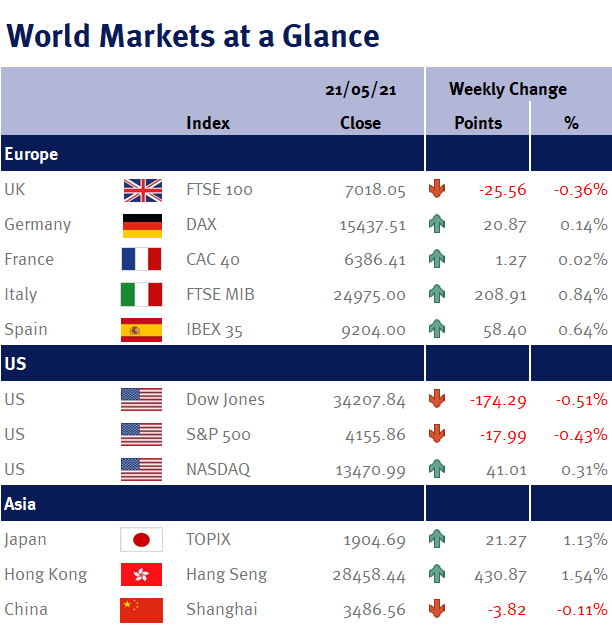At a high level, the signal was that the US economy remains far enough away from its dual-mandate goals (inflation and employment) that no change in monetary policy is needed. This patience is positive as the Fed (along with other central banks from around the world), has form in overestimating the inflation outlook and therefore has been guilty of tightening monetary policy too early – however, there was a hint that if the US economy continues to recover at its current pace, then the time may be getting closer for policymakers to start talking about tightening monetary policy.
Data from the UK this week underlined the strength of the economic recovery: retail sales jumped 9.2% in April as lockdown restrictions were eased; while May’s PMI (Purchasing Managers’ Index) rose to their highest levels since the series began. The manufacturing PMI reading came in at 66.1, versus 60.9 in April, while the services PMI reading rose to 61.8 from 61 in April. Together, this suggests to us that the UK’s economic growth for 2021 could easily beat economists’ consensus of 6%.
Looking ahead to this coming week, the most important economic data releases come from the US: the Chicago Fed activity index; housing data; consumer confidence; durable goods; weekly jobless data; and PCE (the Fed’s preferred inflation measure).
Investment Management Team


